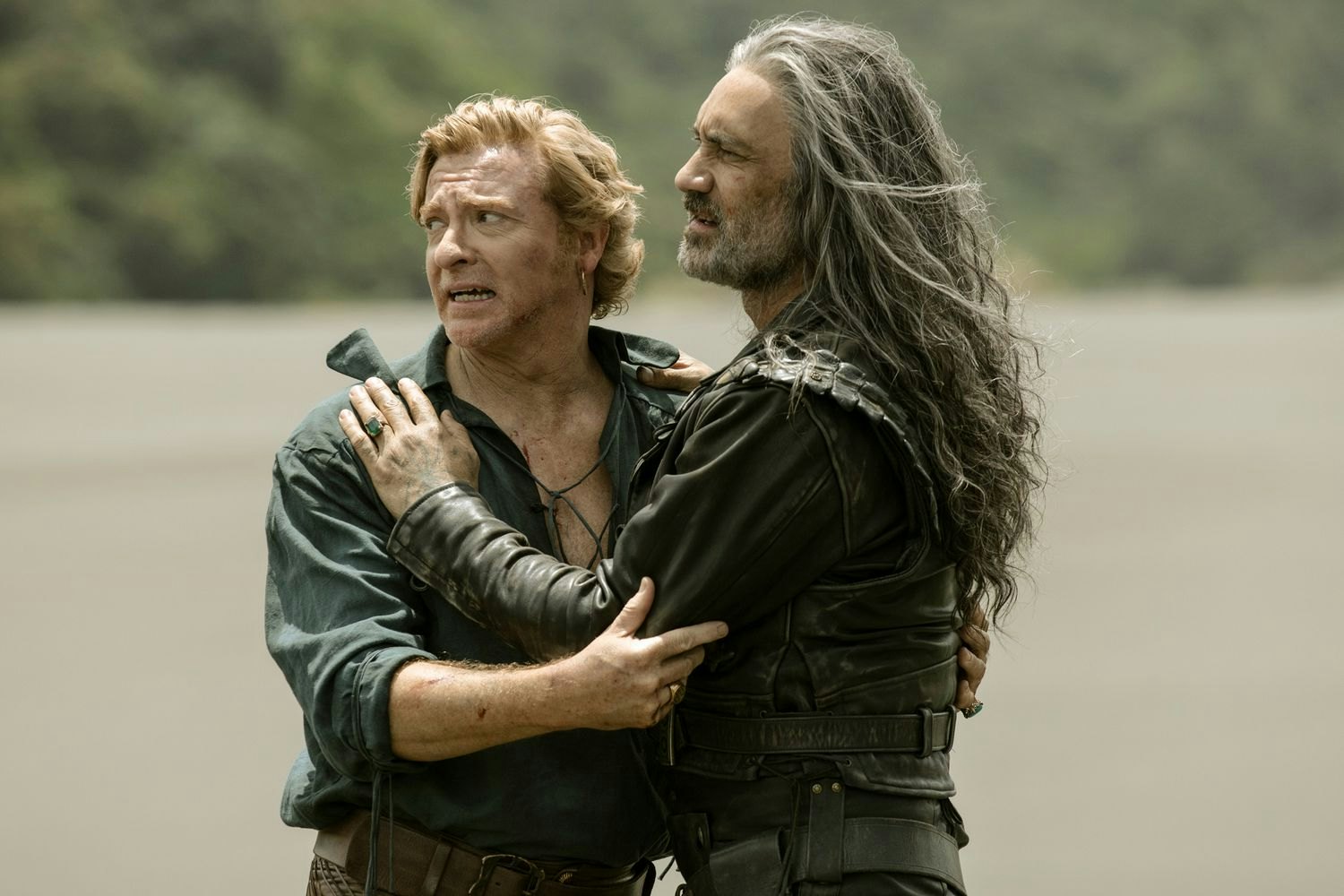
The third episode of Our Flag Means Death’s much-anticipated Season 2 was about as bleak as it could be.
Following the long-awaited kiss between “Gentleman Pirate” Stede Bonnet (Rhys Darby) and Ed “Blackbeard” Teach in the penultimate episode of Season 1, they were torn apart. Ed, in a state of grief, had tormented his crew to the point that they bludgeoned him to death. By the second season’s Episode 3, he’s stuck in a purgatorial plane where he is forced to decide whether to live or die. He settles on death, tying himself to a rock and trying to drown himself. Just as he’s coming to terms with his own demise, he notices something swimming toward him.
Stede, in the form of a merman with a glittering orange tail, swims up to Ed while Kate Bush’s “This Woman’s Work” plays. “I know you have a little life in you yet, I know you have a lot of strength left,” she croons over the two men embracing underwater.
“OFMD Twitter is now divided into two: pro-merstede or anti-merstede,” one fan tweeted. One half of the fandom thought it was cringe, while the other thought it was camp. But there was one thing nobody could deny about the scene: It was incredibly meta.
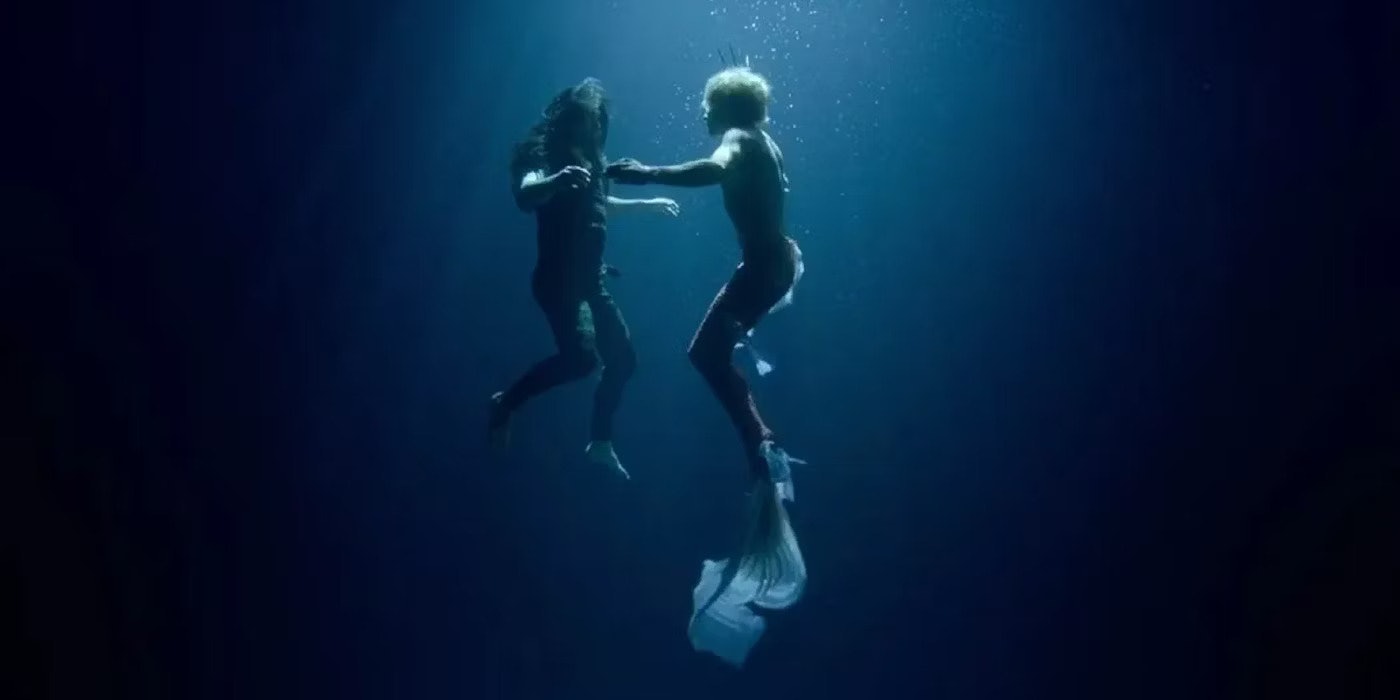
This scene was not only a departure for the usually very grounded (if goofy) action of Our Flag Means Death but for television as a whole. While the Season 1 kiss was a direct subversion of “queerbaiting” — the term for when TV builds up the chemistry between two heterosexual male leads but does not follow through — this moment in Season 2 was an even more explicit nod to the fan culture that turned the show into a phenomenon.
“Season 2 already makes fans feel like they are truly a part of the creation of this wonderful story they love.”
Mermaid Stede was a nod, specifically, to one of the most popular forms of fan works, the “Alternate Universe” or “AU” story. An AU story typically takes existing characters and puts them in a new world. For example, a 1980s AU fic, Piña Coladas, features corporate salaryman Stede and mechanic Ed flirting over fax. Another such popular one is the “mermaid AU.” There are more than 150 “mermaid AU” Our Flag Means Death fanfictions on Archive of Our Own, with the vast majority published before Season 2 premiered. Seeing Mermaid AU Stede appeared to be just another homage to the Our Flag Means Death fandom.
But are the lines between fandom and creator blurring too much? Is the urge to create a story that’s fulfilling to the fandom overtaking the direction of the show entirely? Throughout Season 2, fans have been divided on the matter, but there may actually be a clear answer.
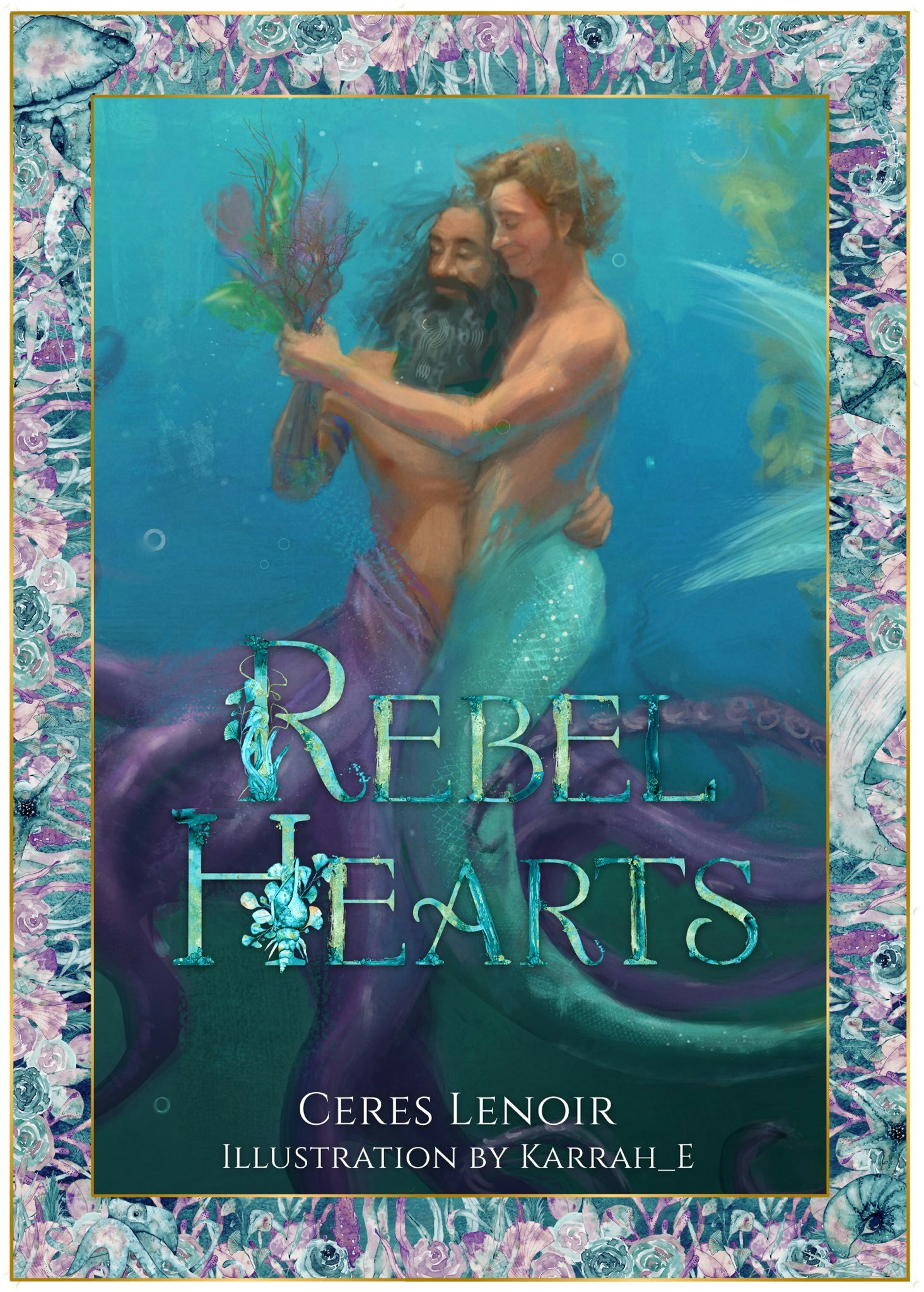
For Our Flag Means Death fan Envil, who declined to give their last name for privacy reasons, the pirate comedy isn’t written like other conventional TV shows. It’s written and directed “to fandom,” because, in a way, it’s fanfiction itself. “Our Flag Means Death is loosely based on actual people from history. However, very little in the show is accurate, and the plot and character portals veer off almost completely from the original historical source,” Envil tells Inverse. “Season 2 already makes fans feel like they are truly a part of the creation of this wonderful story they love. And that’s because the creators and actors are so open and active within the fandom and don’t try to distance themselves too much to where the fans feel alienated and ignored.”
The fact the show itself is based on historical events is something the fandom had to reckon with previously. Stede Bonnet, the actual pirate, funded his adventures off the backs of enslaved people, and fans have made it very clear there’s a division between Stede the character and Stede the real pirate.
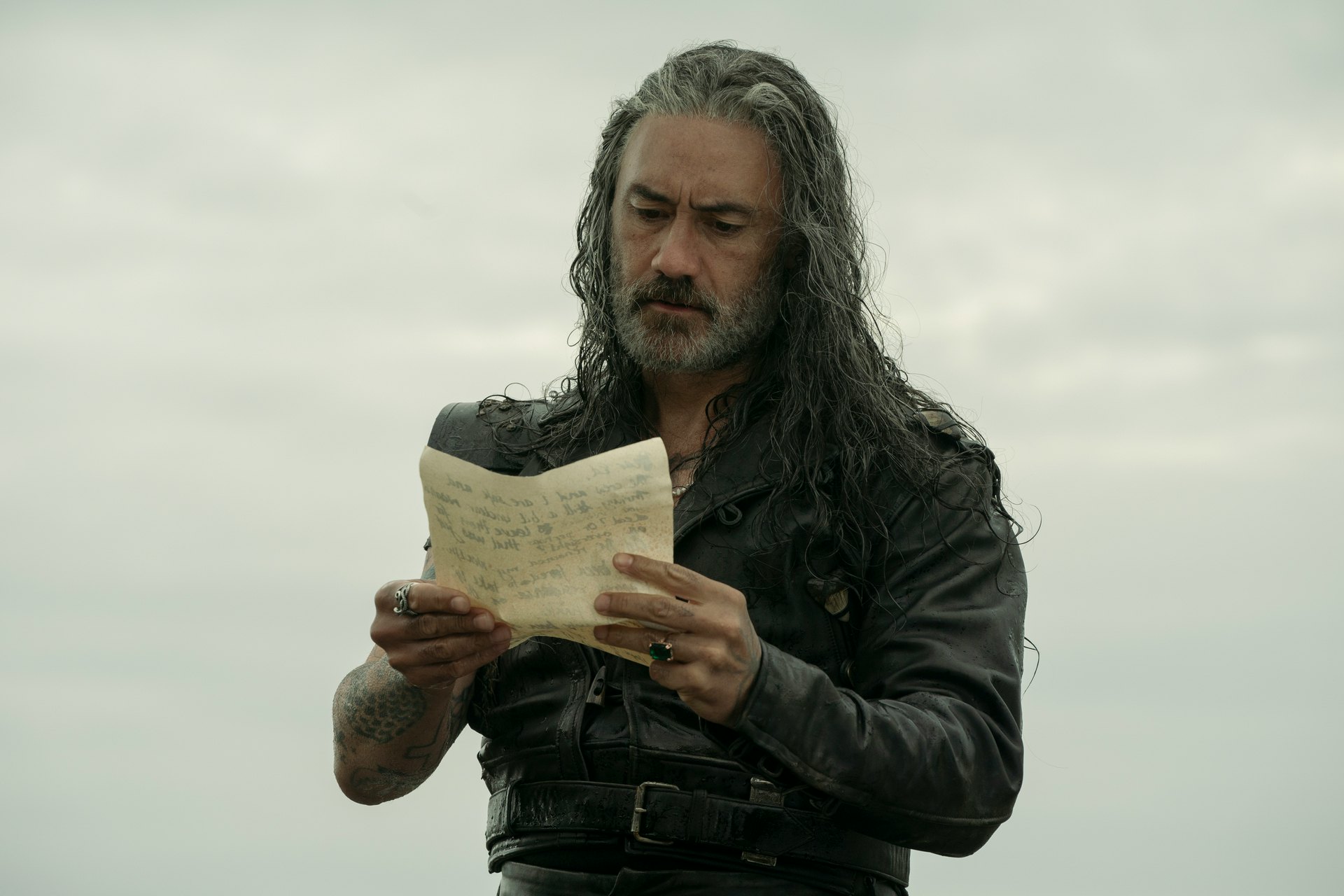
The fandom has a great understanding of “double consciousness,” the knowledge that there is a difference between our world and a fictional world. “They understand that a world is fictional but treat it as real,” Abby S. Waysdorf, Ph.D., an assistant professor in media studies at Utrecht University told Inverse. “The double consciousness that people have allows them to do that, to know that the real Stede Bonnet was obviously an extremely different person than is depicted in the show.”
But with its more fandom-aware second season, Our Flag Means Death is facing a dangerous rhetorical situation: It’s hard to critique how much romance is too much when it’s a queer relationship that is so underrepresented elsewhere. Ames Tierney, another fan, found the mermaid scene a symptom of a larger problem. “It definitely takes away from what feels like natural character progression or dialogue feeling believable when characters just say they love each other or do things so insanely cheesy the show cannot support it,” Tierney tells Inverse. “The fandom is getting everything the fandoms of those [queerbaiting] shows didn’t get, and it’s possible the writers are trying to overcorrect from how gay subtext has existed in other shows.”
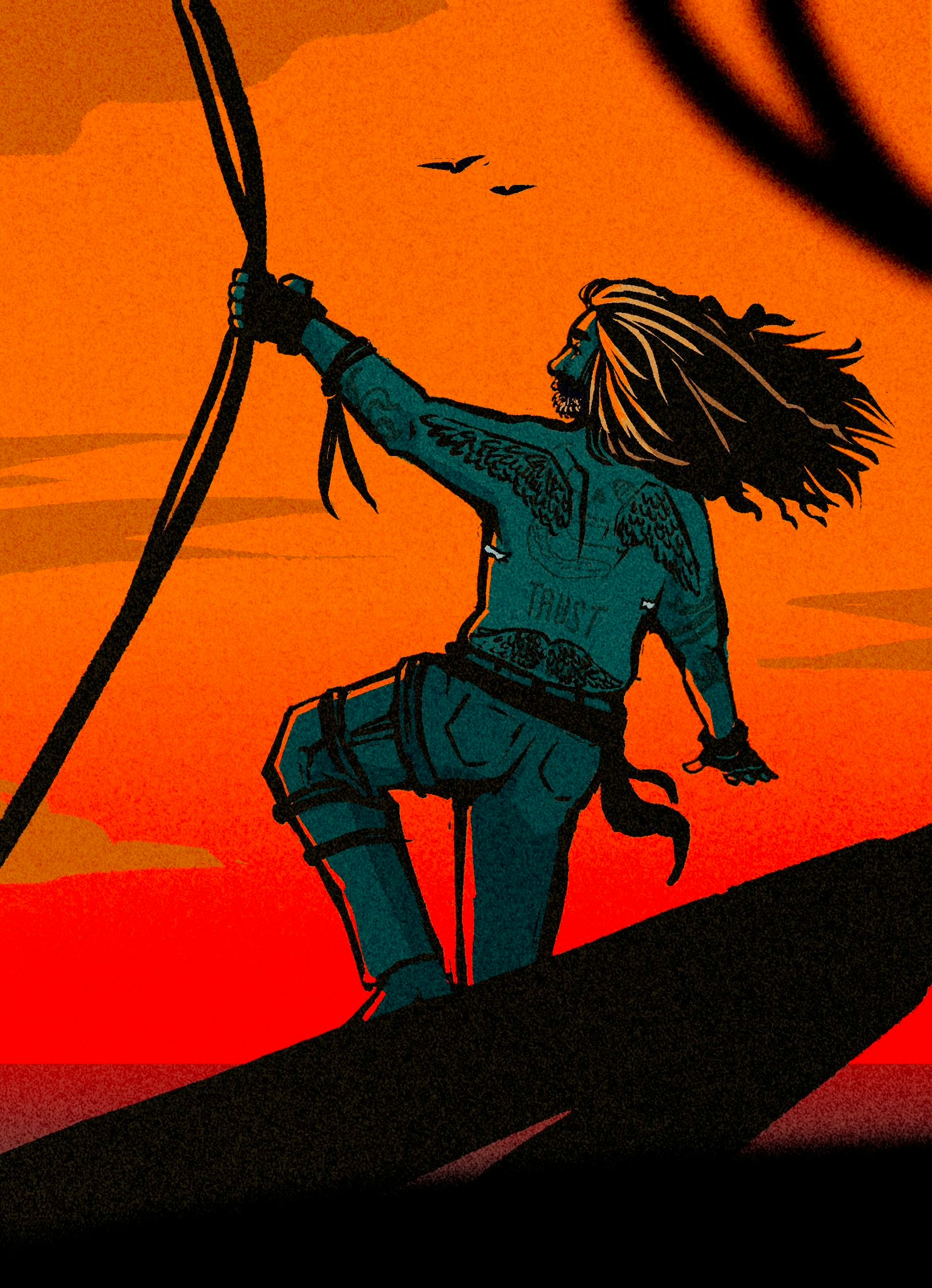
“Overcorrecting” due to fan unrest is very real. In fact, another fandom saw the effects of it only a few years ago. After Rian Johnson wrote and directed Star Wars: Episode VIII: The Last Jedi, it was met with mixed reactions from fans. Lucasfilm later changed course and handed the reins back to J.J. Abrams, whose film appeared to directly respond to fan outcry. But the late shift meant that Episode IX: The Rise of Skywalker was one of the worst-rated movies in the franchise. It’s a calculated risk, to steer a franchise into what fans want more, instead of sticking to an artistic vision.
“It can breed a sense of disconnect around the fact that at the end of the day, we’re consuming someone’s art.”
Our Flag Means Death is a fascinating example of what happens when a fandom feels listened to. Showrunner David Jenkins is very active on Twitter, interacting with fans and chiming in on conversations, and the cast often does the same. The fans know that they no longer have to settle for “crumbs,” as queerbaiting is often called. Because of that, expectations are set considerably higher, and disappointment that much more common.
“It can breed a sense of disconnect around the fact that at the end of the day, we’re consuming someone’s art,” Tierney says, “and people start to take this art and make it their own — which rules and everyone should do that — but then they turn around and say, ‘Hey, why doesn’t this art look like my version of the show?’”
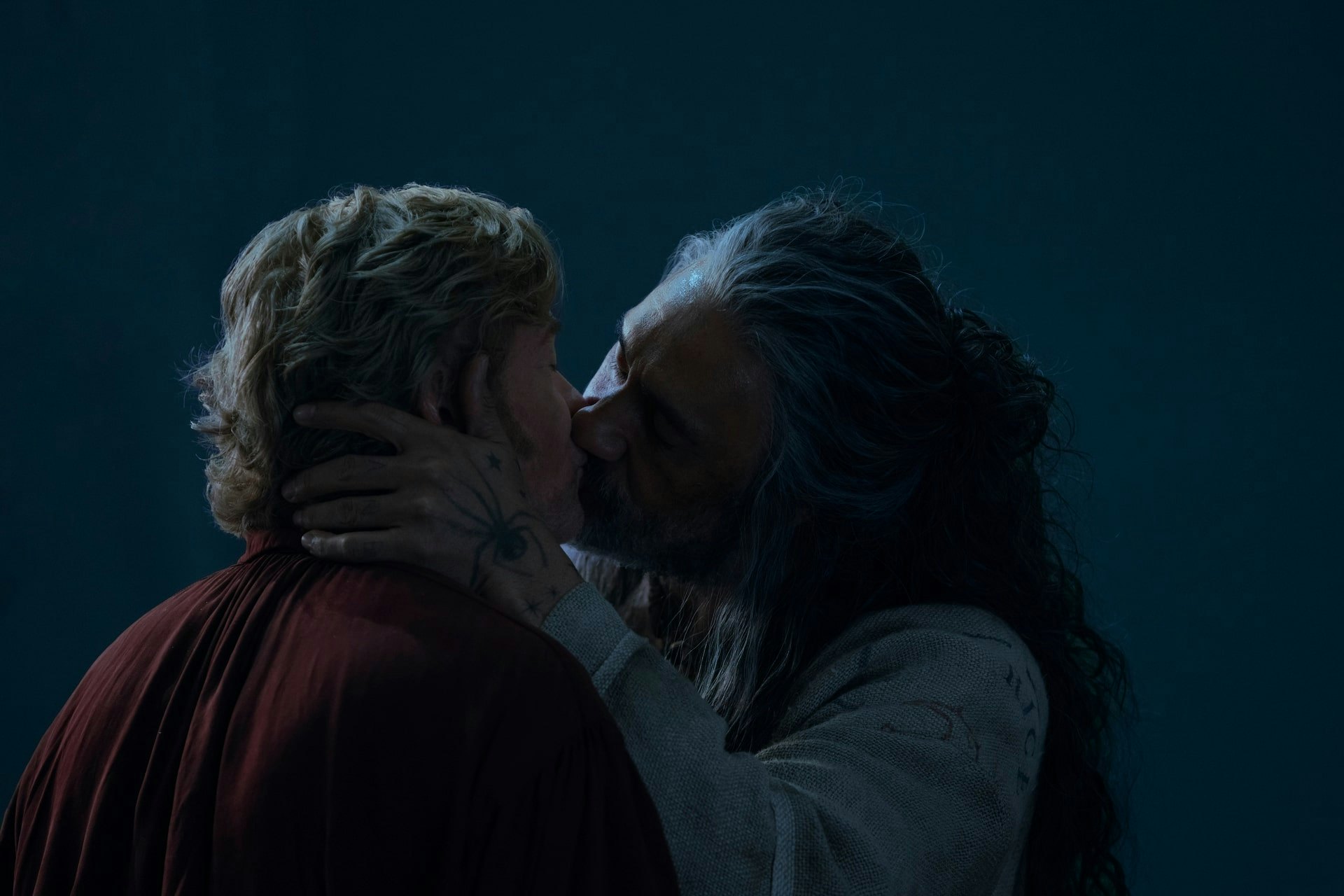
But are fans really entitled, or do they simply have a voice that they haven’t had before? To Envil, the audience and creators are in a symbiotic relationship. “It feels like we are all connected, and when that happens, the creators can create more enjoyable stories by including things that they know will get positive feedback from their audience,” they say. “And as a result, the audience enjoys whatever they create much more than they would if they felt not included.”
In The Routledge Companion to Media Fandom, Riverdale writer Britta Lundin questions the very term itself. “I was thinking about ‘fan entitlement’ and how it’s a thing we’re talking about now, because these pesky fans are speaking out about things they’d like to see in their media. But on the other side of things, creator entitlement is also very real,” she says. “Creators, I think, have always felt like they get to decide what’s best for the story because they’re the creators, and screw all those other voices, but now consumers are challenging that entitlement.”
“The audience enjoys whatever they create much more than they would if they felt not included.”
With Our Flag Means Death, there isn’t really fan entitlement. Instead, there’s a lack of creator entitlement: Jenkins is a creator who is outwardly listening to his fans. In the absence of both forms of entitlement, the show becomes a new form of creativity: a creator and audience creating a world together while acknowledging the other’s role in the process. Television is, as much as creators hate to admit it, a product as well as an art form. When a fandom is listened to, those ideas can be blended with the original creator’s vision to create something that is more than just a compromise: It’s a collaboration.
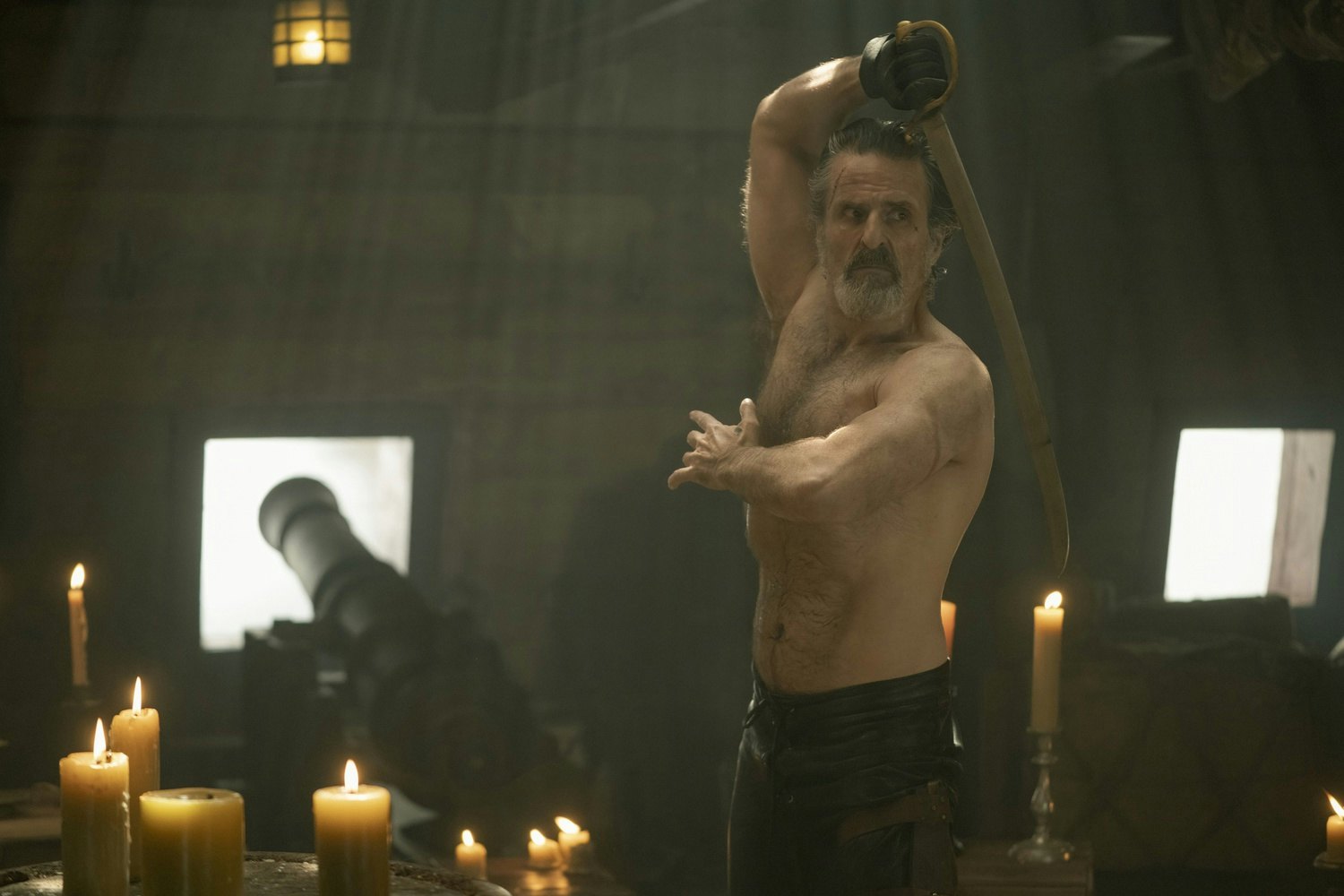
It’s this sentiment that is echoed in Our Flag Means Death’s Season 2 finale. Izzy Hands, one of the most divisive characters within the fandom, takes a moment to explain just how important collaboration in piracy really is. “It’s not about glory. It’s not about getting what you want. It’s about belonging to something when the world has told you you are nothing.”
Suddenly, it isn’t Izzy Hands talking about his crewmates. It’s David Jenkins speaking directly to the fanbase that made Season 2 possible in the first place.
“It’s about finding the family to kill for when yours are long dead. It’s about letting go of ego for something larger: the crew.”







